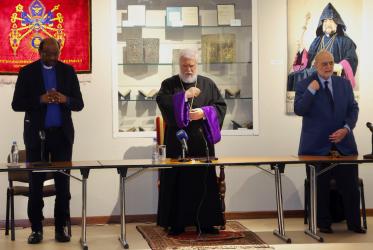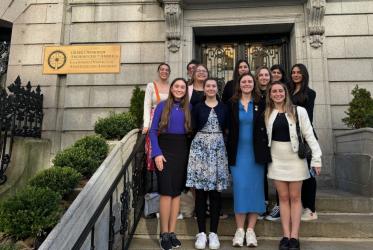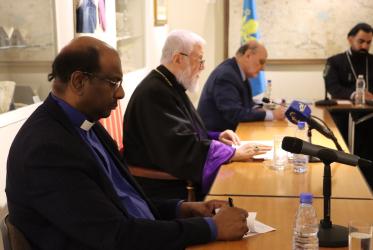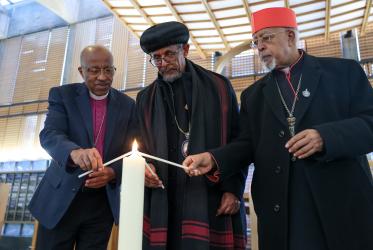Displaying 1 - 20 of 561
23 April 2024
A table with space for everyone
11 April 2024
Voice of churches vital during UN women’s rights talks
28 March 2024
WCC prayer on overcoming racism “based on love for all”
28 March 2024
WCC general secretary will visit Lebanon
19 March 2024
Ahead of Her Time
Pan-African Women of Faith and the Vision of Christian Unity, Mission, and Justice
01 November 2023















